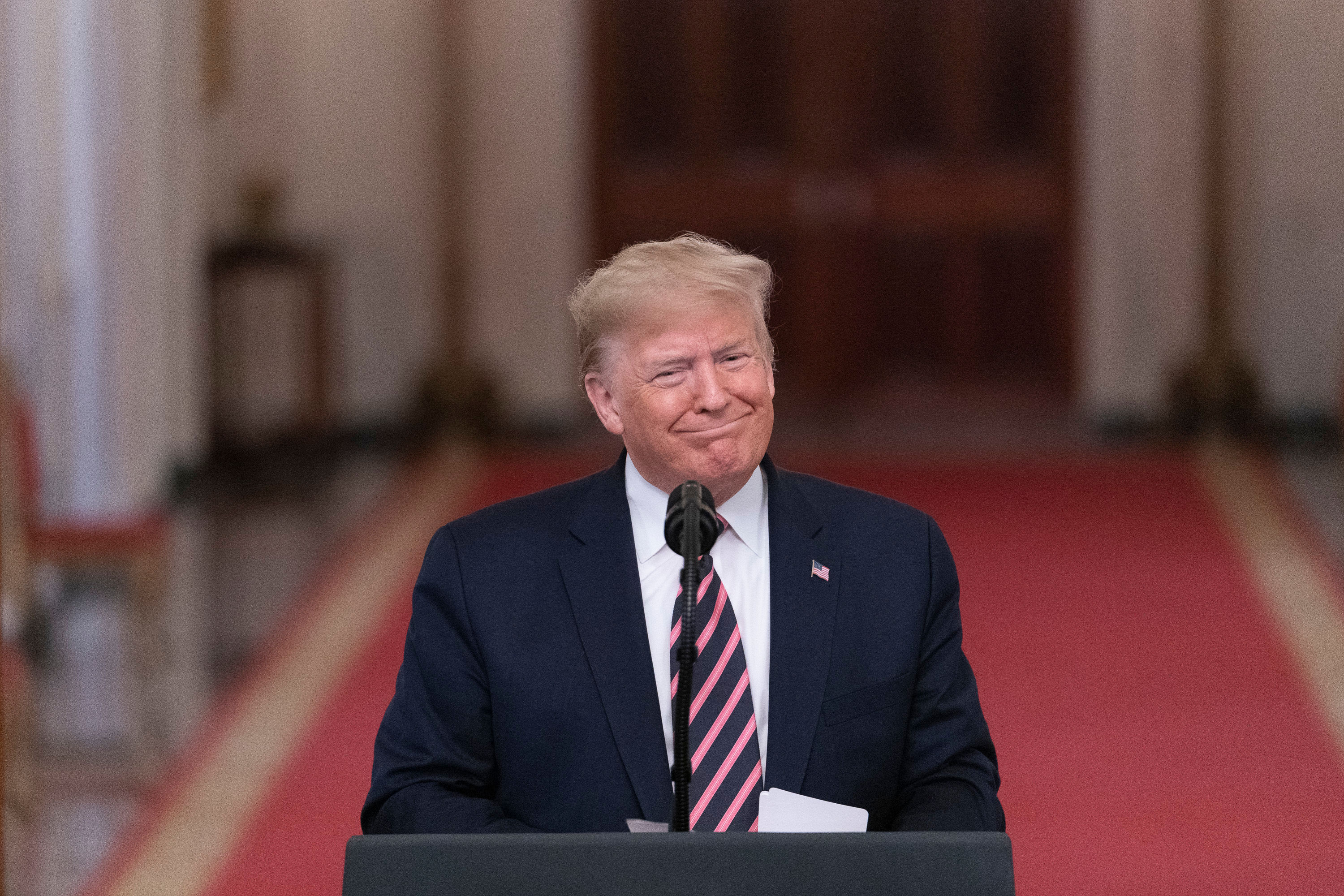Trump: Big Tech Is Waging War on Free Enterprise, Expression
Encourages state AGs to use their power to rein in social media

The smarter way to stay on top of the multichannel video marketplace. Sign up below.
You are now subscribed
Your newsletter sign-up was successful
President Donald Trump told Republican state attorneys general Wednesday (Sept. 23) that the First Amendment needs protecting from "censorship, cancel culture, and consumer abuses inflicted by Big Tech companies," companies he suggested were waging war on free enterprise and free expression.
The President issued an executive order in May in an effort to regulate social media over allegations of systematic censorship of conservative speech. It included a directive that the Department of Justice work with state attorneys general to "combat deceptive and misleading online practices."
Related: Trump Tackles the Edge
The White House meeting and a meeting between Attorney General Bill Barr and the AGs on Thursday (Sept. 24) are responsive to that.
Among those also at the meeting were Barr and Sen. Josh Hawley (R-Mo.), one of Big Tech's biggest critics and a former Republican attorney general.
The President painted a picture of tech companies as a cabal casting a dark shadow on landscape. "In recent years, a small group of powerful technology platforms have tightened their grip over commerce and communications in America," he said. "They’ve used this power to engage in unscrupulous business practices while simultaneously waging war on free enterprise and free expression."
He blamed the "radical left" for pushing the platforms to abuse their users run roughshod over diverse political views.
The smarter way to stay on top of the multichannel video marketplace. Sign up below.
Related: Trump Administration Unveils Legislation to Regulate Social Media
It was not long after Twitter labeled/restricted the President's tweets on mail-in ballots and protests that his executive order directed at curtailing social media's legal immunity for moderation of third party content was issued.
He invoked that Twitter smackdown in the Wednesday meeting, according to a read-out supplied by the White House. "Twitter routinely restricts posts expressing conservative views, even from a President of the United States, while at the same time it allows Iran’s Supreme Leader to freely spew vile, anti-Semitic hate and even death threats," said Trump.
He claimed that "countless" Americans had been "banned, blacklisted and silenced" through Big Tech's arbitrary and malicious enforcement.
The President even tied his critique to the bipartisan concern over data privacy. "Some platforms exploit their power, acquire vast sums of personal data without consent, or rig their terms of service to coerce, mislead, or defraud," he said. "And we’ve seen it so many times," he added, though he did not provide examples.
Attorney General Bill Barr pointed out that Justice had just sent draft legislation to Congress on how the Section 230 civil liability immunity provision could be "reformed."
"[O]nline platforms play a vital role in our society," he said. "Nearly everyone relies on platforms now for -- on a daily basis -- to communicate, to share private information, buy goods, receive news and information. And we’ve grown to depend on it, and necessarily, we’ve had to put our trust in these platforms. But these platforms can abuse those positions of trust, whether by deciding which voices they’re going to amplify and which they’re going to throttle."
He also slammed Big Tech for "improperly tracking and collecting user data and even facilitating criminal activity."
Barr suggested that even before Section 230 is reformed, AGs can use their own state laws against social media platforms they conclude are misleading users.
Contributing editor John Eggerton has been an editor and/or writer on media regulation, legislation and policy for over four decades, including covering the FCC, FTC, Congress, the major media trade associations, and the federal courts. In addition to Multichannel News and Broadcasting + Cable, his work has appeared in Radio World, TV Technology, TV Fax, This Week in Consumer Electronics, Variety and the Encyclopedia Britannica.

